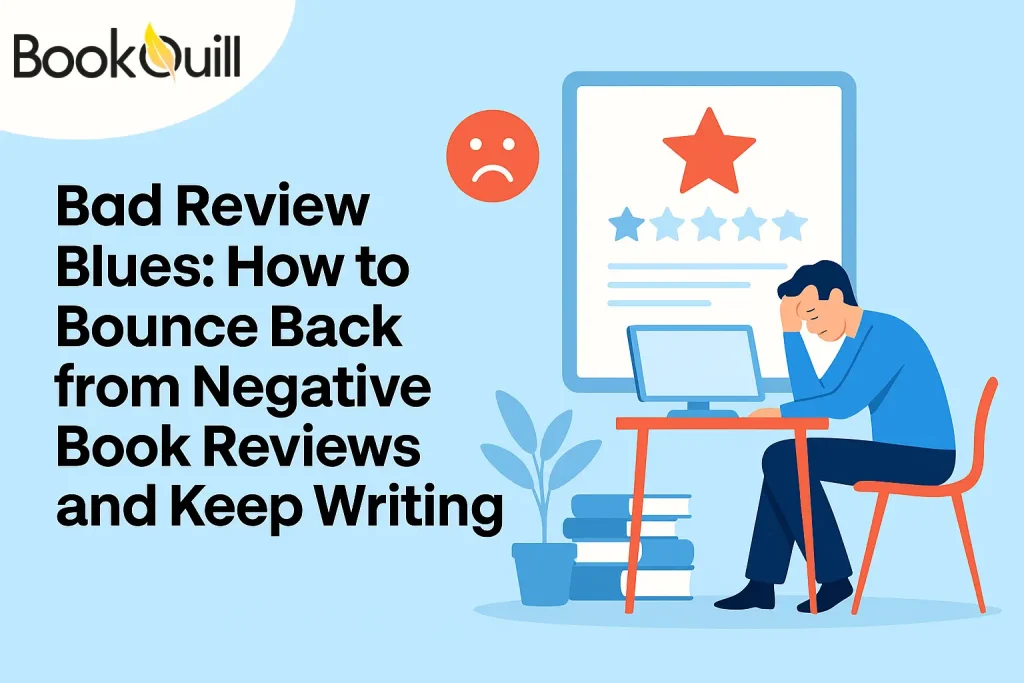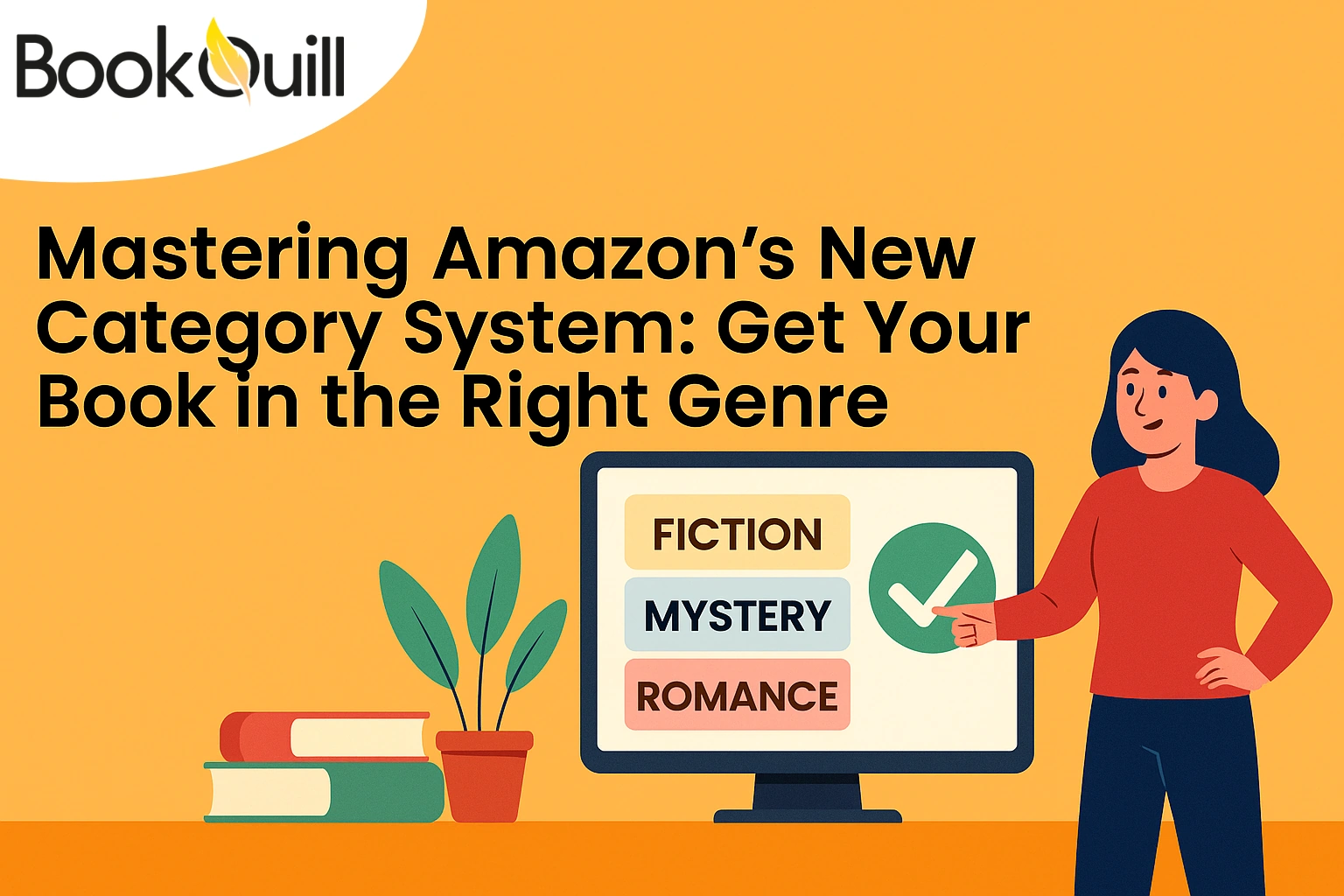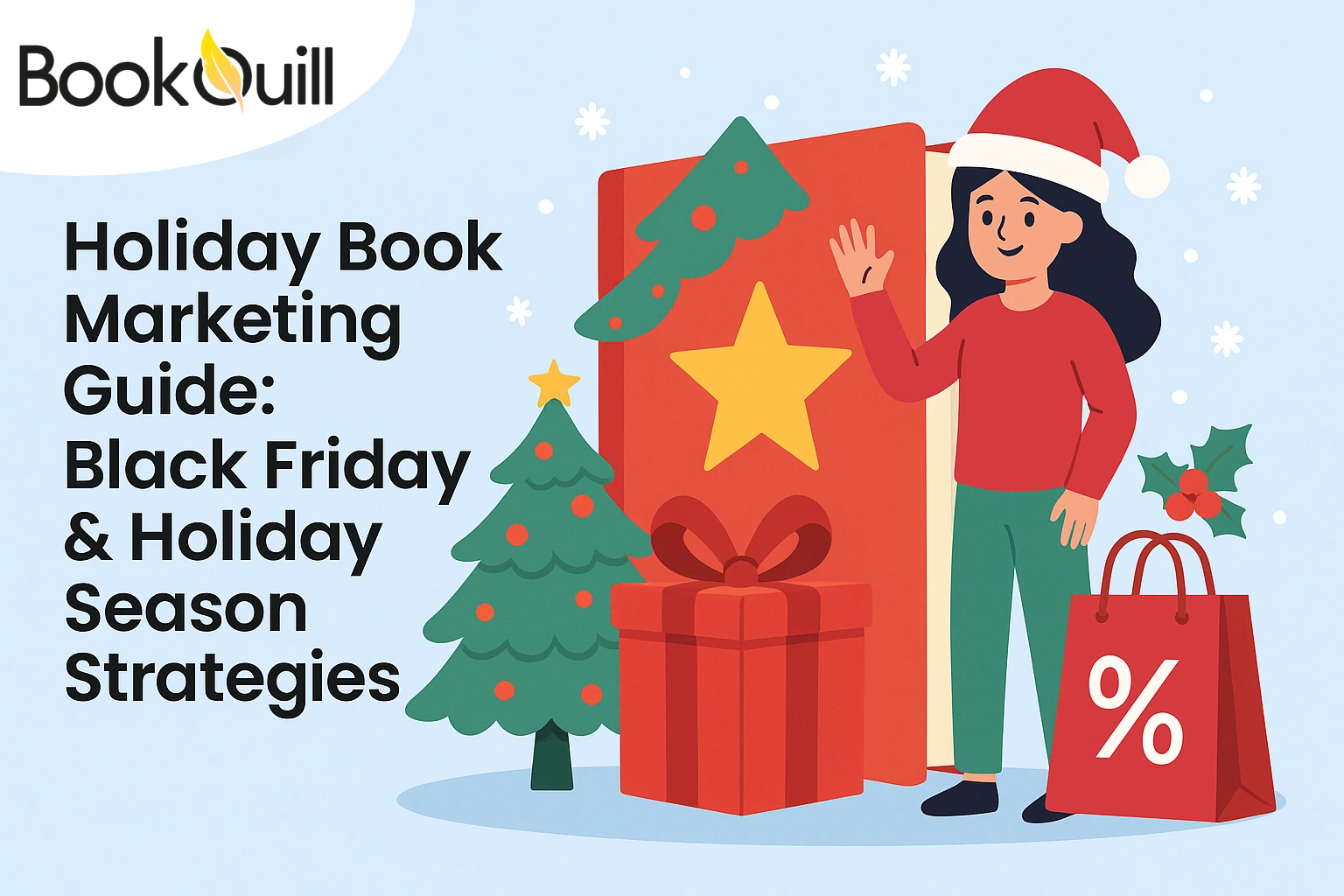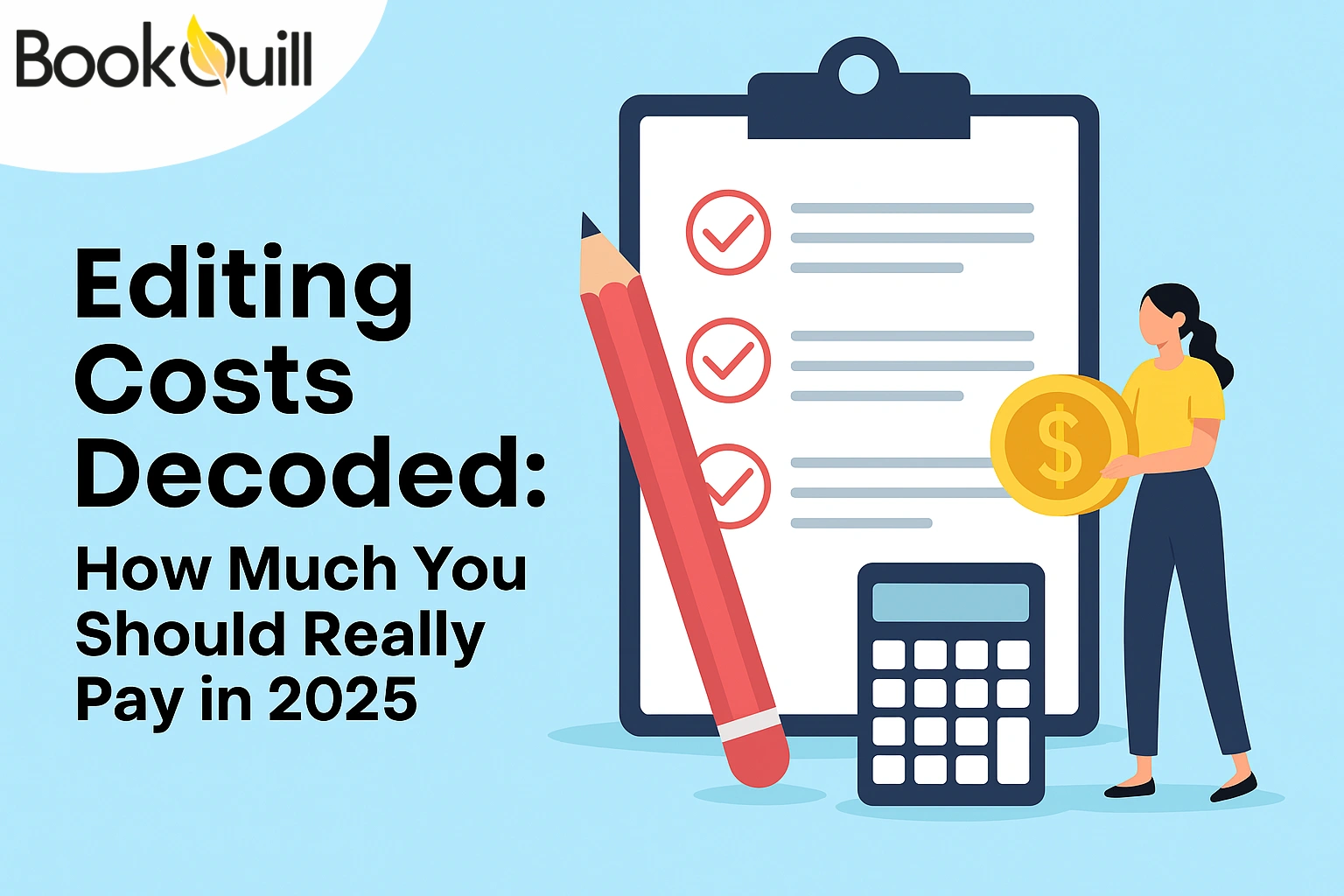Table of Contents
Explore Blogs
Trending on Ebook
Bad Review Blues: How to Bounce Back from Negative Book Reviews and Keep Writing

It’s 3 a.m., you’re in pajamas that have definitely seen better days, and you’re curved over your laptop. You promised yourself you’d just “check for one new review” of your book before bed. Big mistake!
There it is, a shiny, one-star review with the kind of biting comment that makes you wonder if the reviewer confused your novel with their ex’s breakup letter.
Welcome to the world of bad reviews, a place that every writer has visited. And yes, it stings. It stings like someone booing at your wedding. But the truth is, if you have got negative reviews, congratulations. You’re officially a real author. You’ve put your words into the world, and the world did what it always does: it had opinions.
So, if you’ve ever felt the bad review blues, you are at the right spot. The purpose of this blog isn’t to tell you to “just ignore it.” Instead, we’re going to talk about how to handle feedback without quitting. How to turn the sting into strategy. How to transform those one-star burns into stepping stones. Most importantly, you need to know how to keep writing because the worst thing a review can do isn’t dent your ego. It’s to silence your voice.
Key Takeaways
- Bad reviews are part of every author’s journey; don’t let them define your writing career.
- Not all negative feedback is the same, so learn to separate helpful criticism from unhelpful noise.
- The book rating system thrives on authenticity, so a mix of good and bad reviews actually builds trust.
- To consistently get book reviews, pair reader engagement with smart strategies like book advertising services.
- The best bounce-back is persistence, so keep writing, keep publishing, and let professional book marketing services help amplify your reach.
What Are “Bad Review Blues”?
Every writer knows the high of a good review.
But now, flip that image upside down, stomp on the balloons, and imagine the cake is dry and frosted with disappointment; that’s the bad review blues.
At its core, the bad review blues is the emotional fall that follows a harsh critique of your book. You read one cutting comment, and suddenly your brain is auditioning worst-case scenarios: “Maybe I should never write again. Maybe I should take up pottery. Maybe my mother was right about law school.”
It’s a rollercoaster.
First comes the denial (“They must have mistaken my book for someone else’s”), then the anger (“Reviewer #42, if you’re reading this, fight me”), followed by bargaining (“Okay, maybe if I add three more plot twists in the sequel…”), and finally, acceptance. Or at least resignation.
But remember, the blues aren’t a sign you’re a bad writer; they’re a sign you’re a human writer. Feeling gutted by criticism is natural, especially when it’s about something as personal as your words. You’ve spent months or years creating your story. To see it dismissed in three careless lines can feel like someone telling you your baby is ugly.
The trick is not to let the blues become permanent. Like heartbreak or a bad date, it’s temporary. You can, and should, move past it. And when you do, you’ll not only regain your confidence but also sharpen your ability to use reviews as tools.
Should You Ever Respond to Bad Reviews?
Well, honestly, it depends.
Responding to negative reviews directly is like arguing with a stranger in a crowded subway. Even if you’re right, everyone else just sees drama. Readers respect professionalism, and professionalism often looks like silence.
But there are exceptions. If someone points out a factual error (“The Kindle version is missing chapter 12”), a polite, solution-oriented response is fair. Something like: “Thanks for pointing this out! We’ve corrected the file.” That’s customer service.
Otherwise, resist the urge. A defensive response can twist quickly, damaging your reputation far more than the original review ever could. Your energy is better spent improving your next book or working with professional book marketing services to reach the readers who will actually appreciate your work.
Why Negative Reviews Happen and Why They’re Not Always About You
Reviews usually say more about the reader than about your book. Seriously! People bring their own moods, tastes, and baggage to every page.
One reader might call your prose “lyrical and breathtaking,” while another says it “reads like a grocery list.”
Think about it! Somebody out there hates Pride and Prejudice. Somebody once called Stephen King “overrated.” Shakespeare? Too many thee’s and thou’s for some modern readers. If they can’t escape criticism, neither can you, and that’s not a bad thing.
Let’s discuss a few reasons why bad reviews happen:
- Taste is subjective. Your carefully plotted slow-burn romance might be another reader’s “nothing happened for 300 pages.” Their genre expectations weren’t yours, and that’s okay.
- Reader baggage. Sometimes, a reader picks up your book in a bad mood or on a bad day, and your main character just happens to remind them of their ex.
- Mismatch with the audience. Not everyone who buys your book is your target reader. Maybe they saw the cover, thought it was sci-fi, and they felt disappointed.
- Legitimate critique. Occasionally, reviewers point out things you can learn from, like pacing issues, confusing character arcs, or editing slips.
The real danger is taking every review as a final verdict on your worth as a writer. A one-star review doesn’t cancel out the five-star one sitting right next to it. It doesn’t mean you should stop writing. It means your work reached someone who didn’t vibe with it, and that’s just part of publishing.
So, next time you see a brutal comment, try to remember: it’s one reader’s perspective in a sea of millions. Your job isn’t to please everyone; it’s to keep reaching the readers who love what you write.
Bounce-Back Strategies (Practical & Emotional)
Okay, so you’ve read the review. It was brutal. And now the question is, “What do you do with that sting?”
Here are some ways to bounce back (PS: they are tried and tested)
1. Step Away from The Screen
Your first instinct might be to hit refresh twelve more times, but don’t. Close the tab. Walk the dog. Bake banana bread. Whatever it takes to interrupt the doom-scroll. Reviews are snapshots, not life sentences, and sometimes you need distance to see them clearly.
2. Put It in Perspective
For every one harsh comment, you might have twenty readers quietly enjoying your book without saying a word. That means the silent majority isn’t represented in that one-star rant.
3. Build Yourself A “Review Buffer”
Keep screenshots or printouts of your best reviews and kind emails from readers. On bad days, revisit them. It’s like emotional bubble wrap, you’ll still feel the pressure, but it won’t pop you.
4. Separate Useful Feedback from Noise
If three people mention the same issue, say, “the ending felt rushed,” that’s a pattern worth noting for next time. But if one reviewer says your book “ruined their summer,” that’s not exactly actionable.
5. Channel It into Fuel
Remember, every successful author has critics. J.K. Rowling was told Harry Potter was “too long for children.” Stephen King’s Carrie was rejected 30 times. Agatha Christie was once labeled “too hard to follow.” Imagine if they’d stopped? Sometimes the best revenge is simply writing the next book, and writing it better.
And yes, self-care counts. A glass of wine, a run, a nap, or texting a writer friend who “gets it” can all be part of bouncing back. Writing is emotional labor, and you deserve recovery time.
Because here’s the deal! Bad reviews are like milestones. They mean your work is out there, reaching real readers. And that’s something worth celebrating, even if it comes with a side of sass.
The Difference Between Helpful Criticism vs. Unhelpful Noise
Not all bad reviews are the same. Some sting because they hit on something true, while others may insist you turn into a brick wall. The trick is learning to filter.
Helpful Criticism usually looks like this:
- It’s specific: “The pacing lagged in the middle chapters.”
- It’s focused on the work, not you: “The dialogue felt a little stiff,” not “This author clearly hates humanity.”
- It points out areas of growth: editing mistakes, plot confusion, and character development.
This kind of critique is gold, even if it hurts. It tells you where readers got lost and what to improve in future drafts. It doesn’t mean your book is worthless. It means you’re still sharpening your craft. And that’s exactly what professional authors do: they evolve.
Unhelpful Noise, on the other hand, sounds more like this:
- Personal attacks (“This author should never write again.”)
- Overly vague comments (“It was boring.”)
- Misplaced expectations (“I thought this sci-fi novel would have more baking tips.”)
Noise says nothing about your skill. It says everything about the reviewer’s mood, bias, or unmet expectations. You can, and should, ignore it.
Here’s a tip!
Create two folders (mental or literal). One labeled “Feedback I Can Use” and one labeled “The Cat Must’ve Typed This.” That way, you can revisit useful notes without dragging along the baggage of someone’s bad day.
And remember, the book rating system itself is flawed. Stars can’t capture nuance. A two-star review might be written with more thoughtful insights than a glowing five-star full of emojis. Pay attention to the words, not just the numbers.
How to Use Reviews at Their Best
If bad reviews can sting, and good reviews can calm, it all lies in how you use them. Reviews are like tools, maps, even mirrors. When you step back and look at them strategically, they become less about ego and more about growth.
1. Spot the patterns
One review calling your pacing “slow” might be critical. But if you see five readers mentioning that same thing? That’s a pattern worth paying attention to. Reviews can highlight blind spots you didn’t see while buried in your manuscript.
2. Use Feedback to Refine Future Drafts
A thoughtful comment about confusing character arcs or a weak ending can be gold. Sure, it stings, but applying that lesson to your next project is how good writers become great. Think of it as a free workshop delivered straight to your screen.
3. Ignore the Outliers
There will always be that one review that says your book “ruined their vacation” or “reminded them of their ex-boyfriend in a bad way.” That’s not feedback, it’s projection.
4. Strengthen Your Marketing
Did a reviewer rave about how your world-building felt “cinematic”? Use that in your promo copy. Did someone say your book was “a must-read for fans of ___”? That’s marketable language you can echo in ads and outreach.
5. Let Reviews Guide Your Audience Targeting
Sometimes reviews reveal who your real readers are. Maybe you thought you were writing for fantasy fans, but reviews suggest thriller lovers connect more deeply. Adjusting your promotional strategy with custom book advertising services or tools like ConvertKit can help you lean into the right audience without wasting energy on the wrong one.
Keep Writing: The Real “Bounce Back”
At the end of the day, the best way to recover from negative reviews isn’t to write your next chapter, your next book, or your next sentence. Because honestly, the single worst thing a bad review can do is stop you from creating.
Think about it. Every author you admire has faced criticism. The difference is, they kept going. They didn’t let a stranger’s words become a period at the end of their career. They treated it like a comma, just a pause before continuing the sentence.
Stories of Authors Who Faced Bad Reviews
Some of the most beloved authors in history have been dragged through the mud by critics and readers alike. And yet… here they are, cemented in literary history.
1. Stephen King
When King submitted Carrie, it was rejected 30 times before finally being accepted. Even after publication, early reviews called it “raw” and “awkward.” Imagine if he had listened. We wouldn’t have “The Shining,” “It,” or about 60 other bestsellers that kept us awake at night.
2. J.K. Rowling
The first Harry Potter manuscript was famously rejected by a dozen publishers, with one editor noting it was “too long for children.” Fast forward, and the series has sold over 500 million copies worldwide.
3. Agatha Christie
Even the “Queen of Crime” wasn’t immune. Early critics dismissed her work as “lightweight” and “formulaic.” Later, her books have sold over 2 billion copies, second only to Shakespeare and the Bible.
4. F. Scott Fitzgerald
When “The Great Gatsby” came out in 1925, reviews were lukewarm at best. One critic wrote, “It’s an absurd story.” Sales flopped. Today? It’s considered one of the greatest American novels ever written.
Final Thoughts
If you’re still reading this, then you already know the truth. “Bad reviews aren’t the end of your story. They’re just part of it.” They don’t decide your talent, your career, or your future.
Remember, writing takes courage. You didn’t just dream about writing a book; you actually did it. You put your thoughts, imagination, and heart into the world. That’s something most people never try.
And reviews? They mean your book is alive and reaching readers. Every single one proves someone picked up your work. Silence is far worse than criticism.
The only way to fail is to stop. If you keep writing, keep learning, and keep publishing, no bad review can stop you.
So, when you feel the sting of harsh words, pause. Breathe. Remind yourself that every author you admire has been there, too. You’re not alone, and you’re not beaten.
At the end of the day, you’re a writer. Writers write. So, pick up your pen or keyboard, brush off the doubt, and keep going. Because someone is waiting for your next book, and with the right support, maybe even from the best book marketing services, they’re going to love it.
Frequently Asked Questions
How should I handle bad reviews without quitting?
Bad reviews are tough, but they’re also part of being a published author. The key is to filter useful feedback from unhelpful noise, learn what you can, and keep writing.
Do negative reviews affect the book rating system?
Yes, but usually not as much as you think. A few negative reviews mixed with positive ones can actually make your overall rating look more authentic.
How can I get book reviews that are fair and balanced?
One of the best ways to get book reviews is by building relationships with your readers and encouraging them to share their honest thoughts. Pairing that with professional book advertising services can expand your reach and increase your chances of receiving genuine and varied feedback.
What’s the difference between helpful and harmful criticism?
Helpful criticism is specific and actionable (“The pacing lagged in the middle”), while harmful criticism is vague or personal (“This author should stop writing”). Knowing the difference helps you grow without internalizing negativity.
Can professional book marketing services really help with reviews?
Absolutely! While no service can guarantee glowing reviews, the best marketing services help you connect with your target audience, making it more likely you’ll receive thoughtful and positive reviews that boost credibility.
Affiliate Disclosure
Note: Some of the links in this post are affiliate links. This means if you click on them and make a purchase, we may earn a small commission at no extra cost to you. We only recommend products and services we genuinely trust and believe will be useful to our readers. Your support helps us continue creating honest, helpful guides like this one. Thank you!
About Author
Hi, my name is Zachary Stone I’m a book marketing nut — or, as I like to call myself, a “Shelf Marketer.” No, I don’t sell wooden shelves; I market the books that are left forgotten on them. If you want your book to be the next bestseller, I am your go-to person. I am here to remind you that it’s not just about writing a great story — it’s about building a buzz among people with great campaigns.





